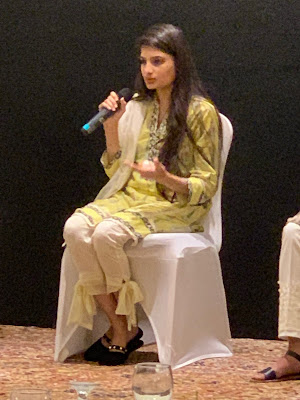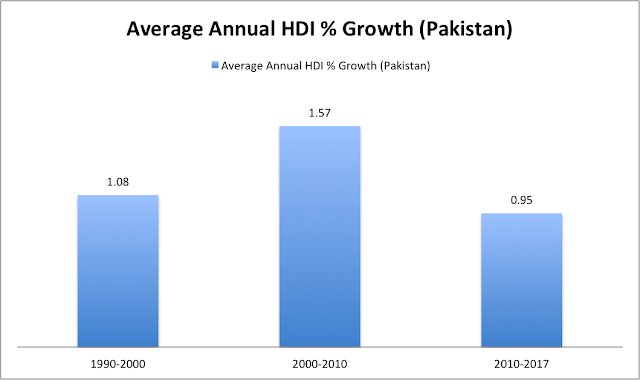PakAlumni Worldwide: The Global Social Network
The Global Social Network
Inspirational Story of University-Going Daughters of Karachi's Rickshaw Driver
Three daughters of a Karachi rickshaw driver named Amjad Ali are attending top universities in Pakistan. All three graduated from The Citizens Foundation's K-12 schools located across Pakistan, including poor districts of Pakistan's megacity of nearly 20 million residents. Amina Amjad, the eldest is studying at Dow University of Health Sciences (DUHS) to become a medical doctor, the second daughter is enrolled in Shaheed Zulfikar Ali Bhutto Institute of Science and Technology (SZBIST) to become an engineer and the third Muskan Amjad is going to the Institute of Business Administration (IBA), Karachi's top business school on a full scholarship.
Girls' Education:
Muskan Amjad |
This would be unusual for a poor man's children attending top universities regardless of gender. What makes it particularly noteworthy is that these are daughters of a poor man in a country where girls' education is often ignored. “People often mocked and criticized me, saying that girls are bound to get married and move out and to stop wasting my hard-earned money on my daughters,” Amjad Ali told hosts of Samaa TV, a private television channel in Pakistan. The Citizens Foundation (TCF) making it possible by making K-12 education accessible and affordable for Pakistan's disadvantaged children. There are many success stories of TCF alumni posted on TCF's Facebook page.
Back in 2013, another TCF alumna Anum Fatima, a resident of Ibrahim Goth slum located near Karachi's Steel Town, made history; she went to Harvard Business School as part of a student exchange program. Anum's father is employed as a driver and her mother works as a maid. The slum school she attended is run by The Citizen's Foundation (TCF), a private foundation.
Karachi Rickshaw Driver Amjad Ali and Family |
The Citizens Foundation:
The Citizens Foundation (TCF) is a non-profit organization, and operates one of the largest privately owned networks of low-cost formal schools in Pakistan. The Foundation runs 1,567 school units, educating 252,000 students through 12,000 teachers and principals, with over 17,400 employees. It has very low overhead by Pakistani NGO's standards. Approximately 94% of the Foundation's expenditure is allocated to the Education program.
 |
| Pakistan Truck Art Message From A Girl: "Let me Study; Let me Advance" |
TCF plays a very important role in the lives of its students during school and after they graduate. It runs an Alumni Development Program (ADP) where successful alumni inspire and mentor students and fellow TCF alumni. Muskan Amjad volunteers for ADP.
If you read Pakistan media headlines and donation-seeking NGOs and activists' reports these days, you'd conclude that the social sector situation is entirely hopeless. However, if you look at children's education and health trend lines based on data from credible international sources, you would feel a sense of optimism. This exercise gives new meaning to what former US President Bill Clinton has said: Follow the trend lines, not the headlines. Unlike the alarming headlines, the trend lines in Pakistan show rising school enrollment rates and declining infant mortality rates.
Key Social Indicators:
The quickest way to assess Pakistan's social sector progress is to look at two key indicators: School enrollment rates and infant mortality. These basic social indicators capture the state of schooling, nutrition and health care. Pakistan is continuing to make slow but steady progress on both of these indicators. Anything that can be done to accelerate the pace will help Pakistan move up to higher levels as proposed by Dr. Hans Rosling and adopted by the United Nations.
Rising Primary Enrollment:
Gross enrollment in Pakistani primary schools exceeded 97% in 2016, up from 92% ten years ago. Gross enrollment rate (GER) is different from net enrollment rate (NER). The former refers to primary enrollment of all students of all ages while the latter counts enrolled students as percentage of students in the official primary age bracket. The primary NER in Pakistan is significantly lower but the higher GER indicates many of these kids eventually enroll in primary schools albeit at older ages.
Declining Infant Mortality Rate:
The infant mortality rate (IMR), defined as the number of deaths in children under 1 year of age per 1000 live births in the same year, is universally regarded as a highly sensitive (proxy) measure of population health. A declining rate is an indication of improving health. IMR in Pakistan has declined from 86 in 1990-91 to 74 in 2012-13 and 62 in the latest survey in 2017-18.
During the 5 years immediately preceding the survey, the infant mortality rate (IMR) was 62 deaths per 1,000 live births. The child mortality rate was 13 deaths per 1,000 children surviving to age 12 months, while the overall under-5 mortality rate was 74 deaths per 1,000 live births. Eighty-four percent of all deaths among children under age 5 in Pakistan take place before a child’s first birthday, with 57% occurring during the first month of life (42 deaths per 1,000 live births).
Human Development Ranking:
It appears that improvements in education and health care indicators in Pakistan are slower than other countries in South Asia region. Pakistan's human development ranking plunged to 150 in 2018, down from 149 in 2017. It is worse than Bangladesh at 136, India at 130 and Nepal at 149. The decade of democracy under Pakistan People's Party and Pakistan Muslim League (Nawaz) has produced the slowest annual human development growth rate in the last 30 years. The fastest growth in Pakistan human development was seen in 2000-2010, a decade dominated by President Musharraf's rule, according to the latest Human Development Report 2018.
UNDP’s Human Development Index (HDI) represents human progress in one indicator that combines information on people’s health, education and income.
Pakistan's Human Development Growth Rate By Decades. Source: HDR 2018 |
Pakistan saw average annual HDI (Human Development Index) growth rate of 1.08% in 1990-2000, 1.57% in 2000-2010 and 0.95% in 2010-2017, according to Human Development Indices and Indicators 2018 Statistical Update. The fastest growth in Pakistan human development was seen in 2000-2010, a decade dominated by President Musharraf's rule, according to the latest Human Development Report 2018.
Pakistan@100: Shaping the Future:
Pakistani leaders should heed the recommendations of a recent report by the World Bank titled "Pakistan@100: Shaping the Future" regarding investments in the people. Here's a key excerpt of the World Bank report:
"Pakistan’s greatest asset is its people – a young population of 208 million. This large population can transform into a demographic dividend that drives economic growth. To achieve that, Pakistan must act fast and strategically to: i) manage population growth and improve maternal health, ii) improve early childhood development, focusing on nutrition and health, and iii) boost spending on education and skills for all, according to the report".
Summary:
The story of Muskan Amjad shows that the state of Pakistan's social sector is not as dire as the headlines suggest. There's reason for optimism. Key indicators show that education and health care in Pakistan are improving but such improvements are slower than in other countries in South Asia region. Pakistan's human development ranking plunged to 150 in 2018, down from 149 in 2017. It is worse than Bangladesh at 136, India at 130 and Nepal at 149. The decade of democracy under Pakistan People's Party and Pakistan Muslim League (Nawaz) has produced the slowest annual human development growth rate in the last 30 years. The fastest growth in Pakistan human development was seen in 2000-2010, a decade dominated by President Musharraf's rule, according to the latest Human Development Report 2018. One of the biggest challenges facing the PTI government led by Prime Minister Imran Khan is to significantly accelerate human development rates in Pakistan.
Here's a video clip of Amjad Ali and his family's appearance on Samaa TV's Naya Din show:
Related Links:
Pakistan's Expected Demographic Dividend
Rasoolpur: Model Village Has 100% Literacy in Pakistan
Pakistani Girls' Journey: From Karachi Slum to Harvard University
Can Imran Khan Lead Pakistan to the Next Level?
Democracy vs Dictatorship in Pakistan
Pakistan Child Health Indicators
Pakistan's Balance of Payments Crisis
Conspiracy Theories About Pakistan Elections"
PTI Triumphs Over Corrupt Dynastic Political Parties
Strikingly Similar Narratives of Donald Trump and Nawaz Sharif
-
Comment by Riaz Haq on September 17, 2024 at 1:35pm
-
Empowering Girls in Pakistan: The Citizens Foundation, USA's Impact
Overcoming Socio-Cultural Norms through Education for Pakistan’s Girls
https://www.usatoday.com/story/special/contributor-content/2024/09/...
TCF's efforts are furthered through collaborations with organizations like the Bill & Melinda Gates Foundation and the Institute of Development & Economic Alternatives (IDEAS). A recent research study funded by the Gates Foundation aims to understand the impact of sustained quality education on female empowerment and shifting social norms regarding gender.
Dr. Asyia Kazmi, Global Education Policy Lead at the Gates Foundation, shares, "It is important we understand if and how education contributes to gender equality and gender transformation and use this information to inform educational programming."
Amjad Ali, a rickshaw (passenger cart) driver from Karachi, knows firsthand the challenges of educating daughters in a conservative society. Despite opposition from his brothers, who suggested marrying off his daughters to ease financial burdens, Amjad stood firm.
Amjad's daughters received education through TCF and, defying societal expectations, pursued higher education. Ameena, the eldest, recently completed a pharmacy degree from DOW University of Health Sciences, while her sisters are following in her footsteps, studying at prestigious institutions and pursuing professional careers.
Through its holistic approach, TCF-USA is not just educating children but transforming entire communities. By integrating community needs like water purification projects and financial literacy programs, they ensure sustainable and impactful change.
The work of TCF-USA continues. As they support educational opportunities for girls in Pakistan, they are dedicated in their mission to empower the next generation of leaders and changemakers.
"Together, we can create a Pakistan where every child has the opportunity to learn, grow, and thrive," concludes Hasan.
To support the work of TCF-USA in empowering education in Pakistan, visit tcfusa.org.
Comment
- ‹ Previous
- 1
- 2
- Next ›
Twitter Feed
Live Traffic Feed
Sponsored Links
South Asia Investor Review
Investor Information Blog
Haq's Musings
Riaz Haq's Current Affairs Blog
Please Bookmark This Page!
Blog Posts
Trump's Tariffs on India: Can China or Russia Make Up For Lost Exports to US?
The United States is the biggest export market for India. Among its top 5 trading partners, the US is also the only country with which India runs a trade surplus. This surplus is now at risk with the 50% tariff recently imposed by President Donald Trump on imports from India. Can Prime Minister Narendra make up for it by cozying up to China and Russia? Recent trade data shows he…
ContinuePosted by Riaz Haq on September 8, 2025 at 7:00pm
US-India Ties: Does Trump Have a Grand Strategy?
Since the dawn of the 21st century, the US strategy has been to woo India and to build it up as a counterweight to rising China in the Indo-Pacific region. Most beltway analysts agree with this policy. However, the current Trump administration has taken significant actions, such as the imposition of 50% tariffs on India's exports to the US, that appear to defy this conventional wisdom widely shared in the West. Does President Trump have a grand strategy guiding these actions? George…
ContinuePosted by Riaz Haq on August 31, 2025 at 6:30pm — 11 Comments
© 2025 Created by Riaz Haq.
Powered by
![]()





You need to be a member of PakAlumni Worldwide: The Global Social Network to add comments!
Join PakAlumni Worldwide: The Global Social Network